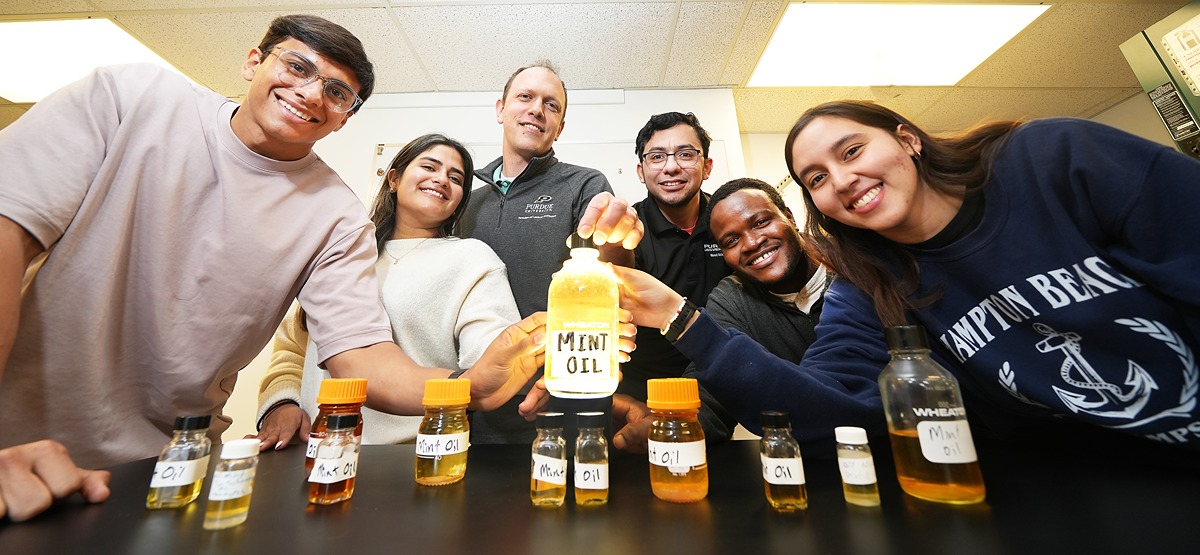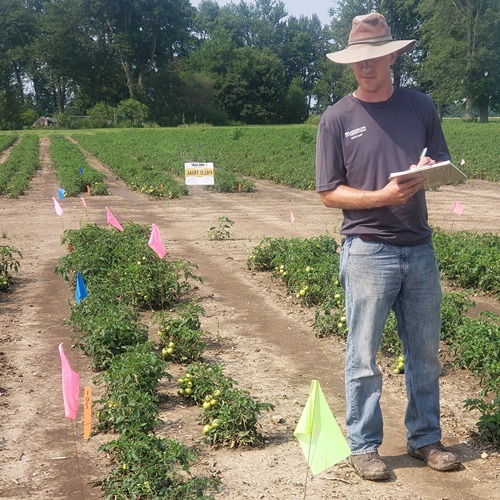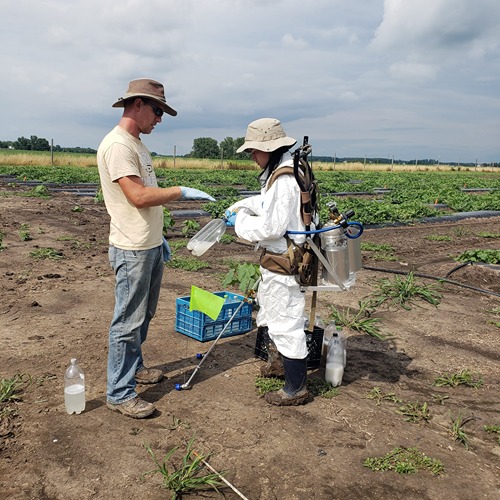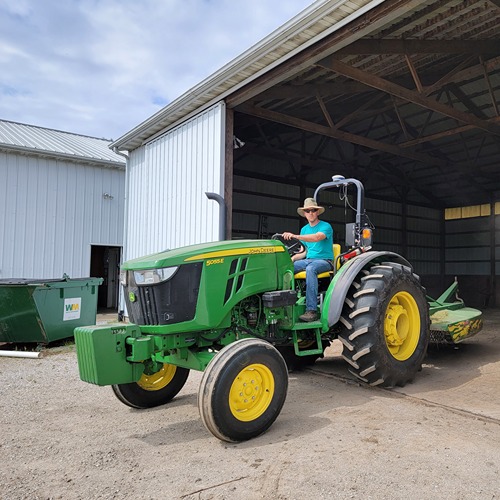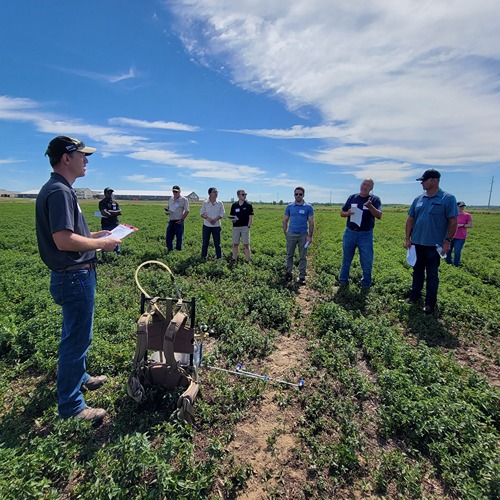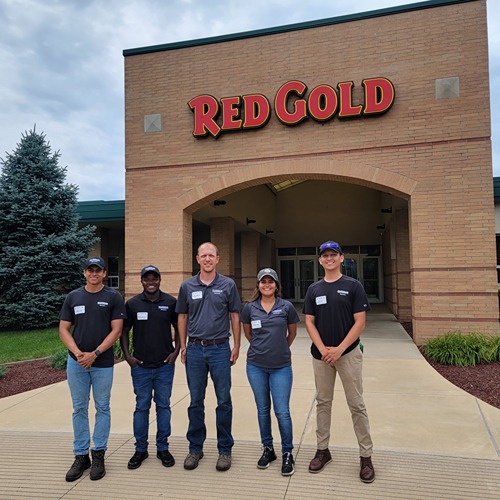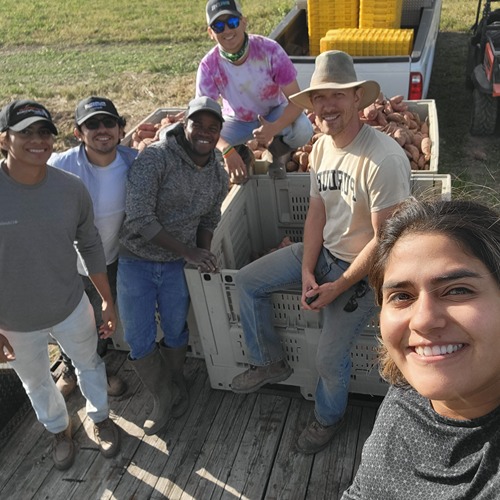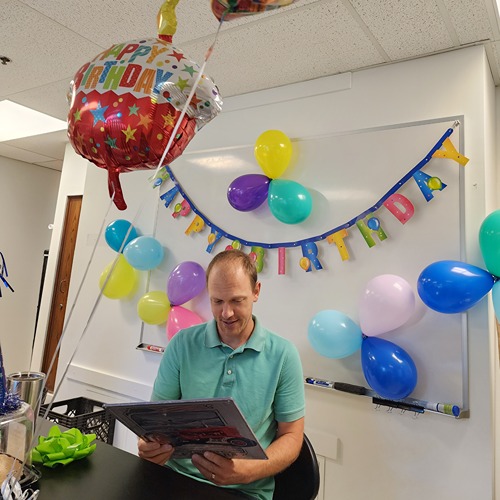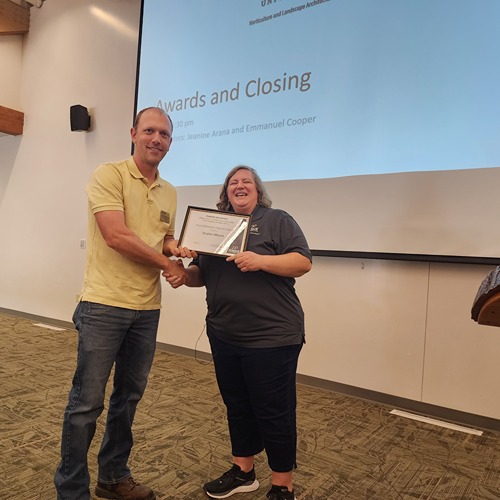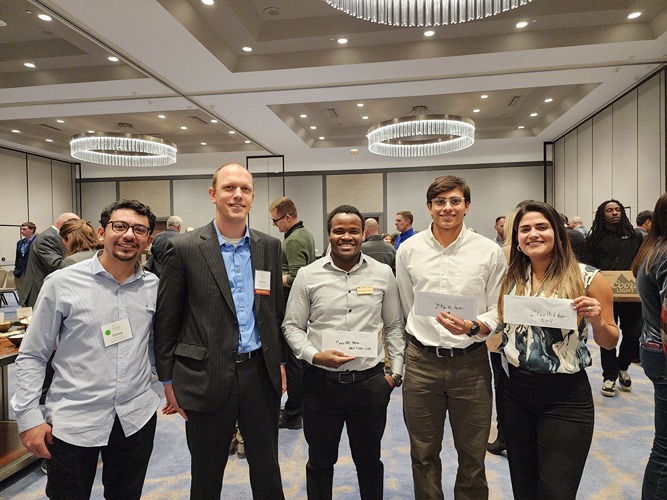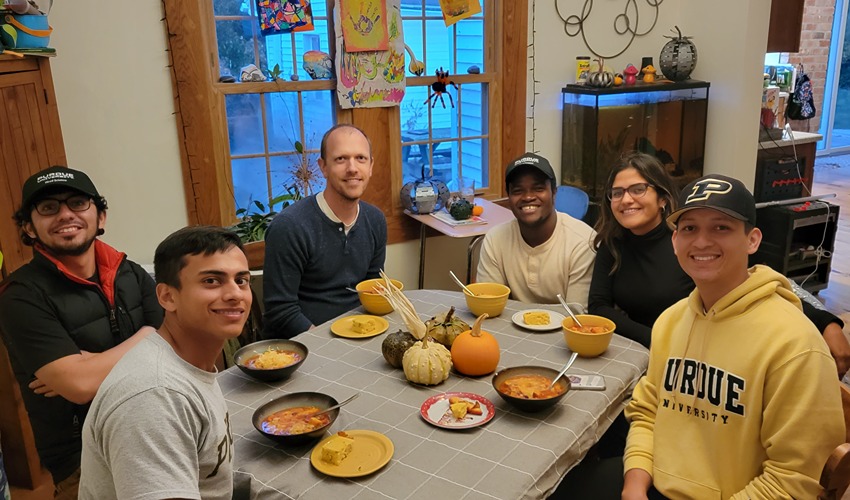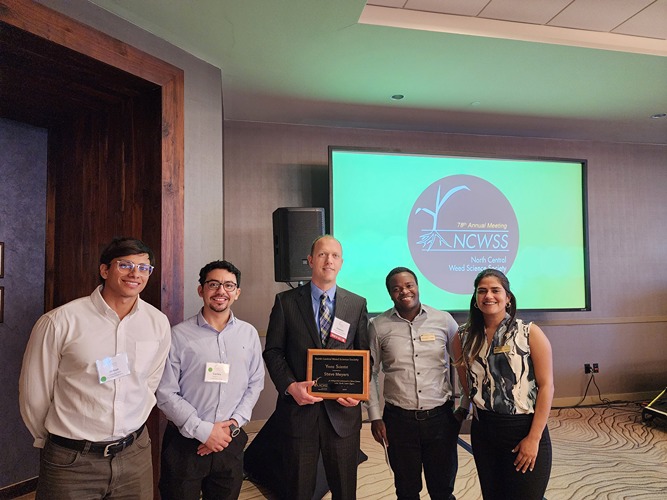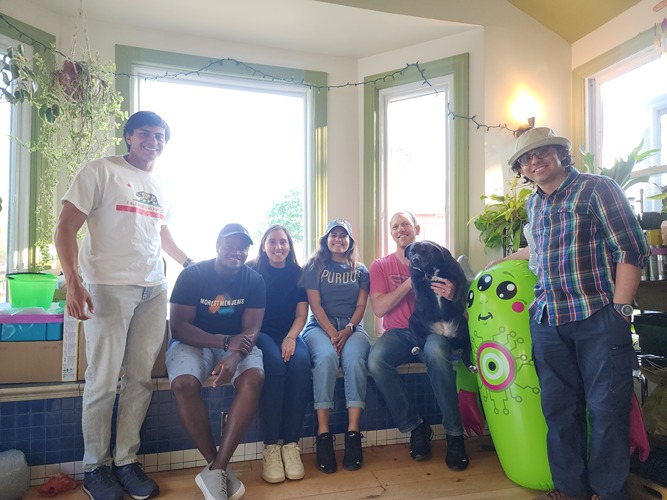If you’re cruising through northern Indiana in late summer or early fall, roll down your windows. Take a deep breath. Where does the smell take you? Candy canes and hot cocoa? The gum you keep asking for from your friend? Maybe the toothpaste you used that morning?
For Stephen Meyers, an assistant professor in the Department of Horticulture & Landscape Architecture, the smell brings him back to his childhood in Parr, Indiana. Cool minty breezes would waft over the town as farmers distilled their mint to extract its oil. He may not have been directly involved in agriculture, but it always surrounded him.“I got my introduction to agriculture through the 4-H gardening project,” Meyers said. “I think part of the motivation was I got a seed catalog in the mail, and there was a coupon on the front cover for something like $25 off your order of $25 or more. I was excited by free seeds.”
Not only does he have fond memories of somewhat successful gardens and learning to can tomatoes alongside his parents, but the 4-H workshops Meyers attended as a high schooler allowed him to explore plant science for the first time. Those experiences encouraged him to come to Purdue University to earn his undergraduate degree in horticulture.
Meyers always thought he’d go into greenhouse management, but in Lilly Hall of Life Sciences, a flier for a weed science minor took him in a different direction. He realized he needed just one more high-level weed science class for the minor and decided to take it because it would look good for graduate school applications.
Meyers went on to study Palmer amaranth, or pigweed, in sweet potato for his master’s and numerous problematic weeds of blueberry and blackberry for his PhD at North Carolina State University. He jokes that weeds paid for his graduate education.
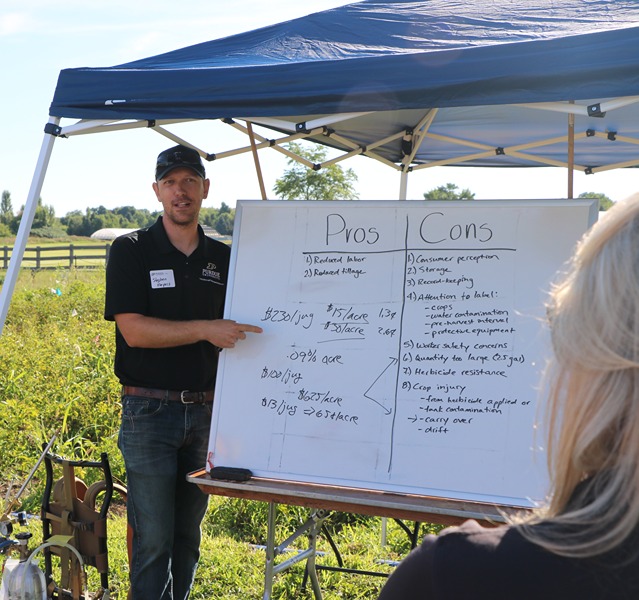 In 2019, Meyers returned to Purdue University as an assistant professor. His lab is in the building where he once did research as an undergraduate, and his former professors in horticulture and landscape architecture are now his peers. He has become a champion of the land-grant mission that brought him to Purdue time and time again for himself, his students and his farmer-neighbors from his hometown.
In 2019, Meyers returned to Purdue University as an assistant professor. His lab is in the building where he once did research as an undergraduate, and his former professors in horticulture and landscape architecture are now his peers. He has become a champion of the land-grant mission that brought him to Purdue time and time again for himself, his students and his farmer-neighbors from his hometown.
For graduate student Josué Cerritos García, Meyers’ path gives him hope for his own. “I think it's just interesting that he's come back here to his roots and that he wasn't brought up by farmers. I'm from the city too, so we don't come from farmers, and I identified with him on that.”
Although his lab is relatively new to Purdue, Meyers is already making a significant impact. He received the Young Scientist Award from the North Central Weed Science Society in 2023, and his graduate students nominated him for the Extension Impact Award he received the same year.
“We can pursue extension, research and teaching in one lab because we have an advisor that's also a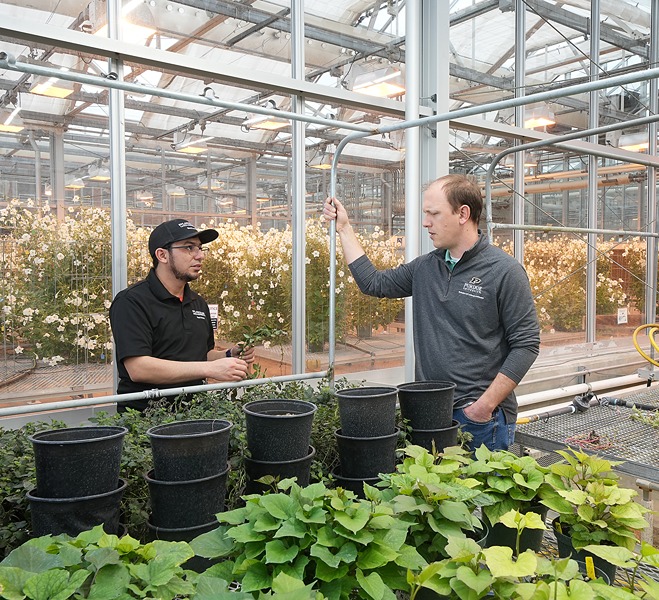 mentor,” Meyers’ graduate student Jeanine Arana said. “The best part is that Dr. Meyers trusts us to go and talk to farmers, and he trusts us because he has given us the right example about caring.”
mentor,” Meyers’ graduate student Jeanine Arana said. “The best part is that Dr. Meyers trusts us to go and talk to farmers, and he trusts us because he has given us the right example about caring.”
On his own farm, Meyers grows the same fruits and vegetables that his lab and stakeholders work with. He joins his students in dirty field work, coaches them through teaching assistant assignments, sends them to conferences and encourages them to work together. Since much of his lab speaks English as a second language, he’s working toward becoming a better listener by learning their languages on Duolingo.
“I don't have enough words to describe how much this lab has impacted my life,” visiting research scholar, Carlos Antonio López Manzano, said. “I never thought I could do all these things. I’ve learned a lot and that helps me to be confident not only in the field, but in any aspect of life.”
What I hope people value about the land grant and especially Purdue is that you can trust the information you get from it. Having the ability to identify problems through our interaction with stakeholders, to do the research, to find a solution and then to close that loop and make sure that they get the information they need—that’s something that hopefully will never go away.”
- Stephen Meyers, assistant professor in the Department of Horticulture & Landscape Architecture
